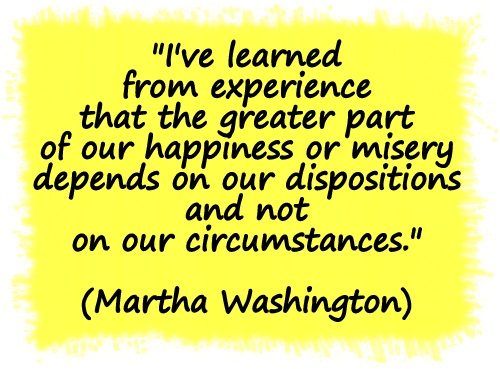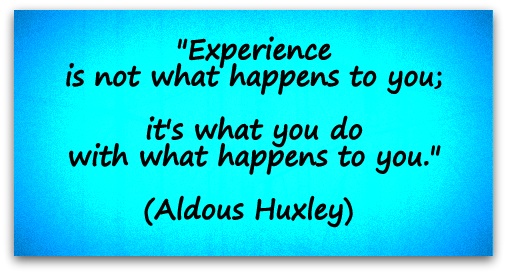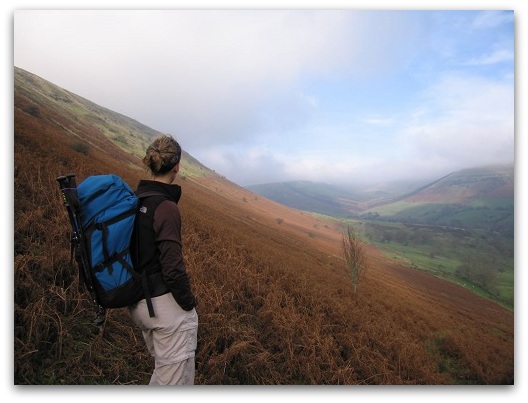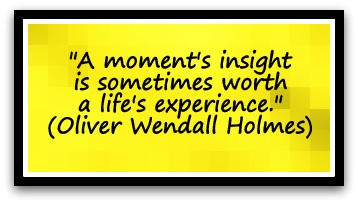Coaching Quote of the Day 27th June 2014

“I’ve learned from experience that the greater part of our happiness or misery depends on our dispositions and not on our circumstances.”
(Martha Washington)

“I’ve learned from experience that the greater part of our happiness or misery depends on our dispositions and not on our circumstances.”
(Martha Washington)
In today’s guest post Allan N. Mulholland shares criteria he considers essential for how he works:
By Allan N. Mulholland
There is much more to coaching than simply picking up the phone at a pre-arranged time and connecting with your client for a 30 minute chat! The old axiom “You only get out of it, what you put into it” was never more true than for your coaching session. The client must receive maximum value from the session, while the coach receives maximum fees.
If you want to facilitate the successful achievement of your client’s Desired Outcome, every one of your coaching sessions must be purposeful, results-driven and goal-oriented! If you want to charge top coaching fees, you better be prepared to go the extra mile and turn your coaching session into a coaching experience.
There are many elements that make up a properly executed coaching session. Here are the 10 session criteria that I consider essential for creating a coaching experience!
1 – Preparation
Before I connect with a client, I always allow myself 15 minutes to properly prepare for the session. This is the time when I do all of the following:
Every time I conduct a coaching session, I take detailed notes on everything that happens during the session. I am always amazed at how many coaches rely on memory from one session to the next. If you don’t take notes, you are not a credible and professional coach! Winging it is for the birds!
Every Coaching Program that I prepare for a client is based on a 3 – 6 month timeline. I use this timeline to hold both the client and myself accountable for achieving measurable progress toward a Desired Outcome.
Prior to every session, my clients submit a Coaching Prep Sheet where they write a brief summary of the progress they made since the last session and where they want to spend some extra time during the next session.
Based on the notes, timeline and prep sheet, I create a simple agenda that I will use to keep the coaching session on track and on time. Now I’m ready to make the call!
2 – Maintaining Control
When you engage in a coaching session with your client, it is imperative that you are in control of the conversation at all times! You are the conductor of your “coaching bus” and your client is the passenger! While your client may have an itinerary of places he or she wants to go, you’re the one who is driving the bus that will take them there!
This is especially true if you’re giving away a free initial coaching session! You’re passenger hasn’t even paid for the bus ticket yet, so don’t let them grab the steering wheel! If they can drive the bus themselves, why do they need you? Yet so many coaches allow their clients to “hijack” the coaching bus and take control of the session.
If you want to deliver a quality coaching session, you’ve got to be in control! How do you maintain control? By asking questions!
3 – Asking Questions
Lead the conversation by asking questions! These questions must be targeted and focused on the Desired Outcome. Listen intently to your client’s answers!
Ask more questions! Maintain control! And then wait for the “Coaching Climax”!
4 – Creating Coaching Climaxes
A Coaching Climax is the ‘mental trigger’ that validates and authenticates a pivotal point in a coaching session. I deliberately chose the word ‘climax’ as a metaphor for the powerful impact it has on a coaching client. A skillful Coach can achieve multiple Coaching Climaxes for a client during a coaching session.
If your client does not experience at least one coaching climax for every 15 minutes of coaching, your coaching session did not measure up to the rigorous standards of a Coaching EXPERT!
5 – Achieving Milestones
A sure-fire way to keep your clients motivated and on track is to provide measurable accomplishments during and following each coaching session. Recognize the progress the client has made since the last session and point out any recent ‘milestones’ that he/she has reached. A ‘Success Formula’ is created when a string of ‘milestones’ are recorded along the path to achieving a Desired Outcome.
6 – Keeping focus on the Desired Outcome
If you don’t keep focus on the Desired Outcome, the client may start to wander in different directions. While you certainly do not want to stifle any opportunity for your clients to achieve a Coaching Climax, you must guard against any random deviations from the session agenda. If you don’t, the session will miss its objective and will be difficult to record in your notes in the context of the overall Desired Outcome.
7 – Inserting the Accountability Factor
The “accountability factor” must be ever present throughout the session! As a Coach, you must hold your clients accountable for their actions.
8 – Reviewing the session
Before you wrap up your coaching session, you must do a quick verbal recap of the things your client achieved during the call. This will re-enforce the client’s perception of value and the investment the client is making in you as a coach!
9 – The Assignment
Always assign some homework that the client must complete by the next session. This could be writing a new resume, drinking less alcohol, starting a new project for their home or business, celebrating a special occasion, etc.
10 – The follow-up email
For me, this is the ‘icing on the cake’! As a true professional, you must send a brief email to your clients that recognizes the Coaching Climaxes that were created, the Milestones that were achieved and the Assignment that is to be completed by the next session!
Incorporate these 10 elements in your coaching sessions and discover how you can create a unique and valuable coaching experience for your clients!
Allan N. Mulholland is the founder and president of PersonaCoach (Int’l) LLC, which provides training and certification for life & business coaches. He is the author of “Change Your Perception, Change Yourself!” and writes on all aspects of coaching training and development.
To get Allan’s free eBook “Become a Coaching EXPERT and Charge EXPERT Coaching Fees!” go to http://www.personacoach.com
CLICK HERE to join Allan’s LinkedIn Group.

“Experience is not what happens to you; it’s what you do with what happens to you.”
(Aldous Huxley)
In today’s guest post football/soccer coach Anthony Goss reflects upon how his past influences his coaching now.

By Anthony Goss
I have never written a blog before. Here it goes. . .
I started late playing football, when I was 10/11 from what I remember. Most kids around me had started before me, therefore had couple or more years to develop the basic balance and co- ordination needed to play football.
This meant by the time I joined the local football club Totnes and Dartington (will be using T&D as short hand) I was behind. Looking back, I would say I was a late developer overall and this along with my late start in football meant I wasn’t very good compared to the other players in the team.
The manager/ coach was old fashioned. He only played the best players in their best positions. It was all about winning for him. This meant that I, along with several other players never got a chance to play in actual games for T&D against other teams. Even though I turned up every training session, in all weather conditions I wasn’t picked because I wasn’t considered good enough to play.
Now looking back, I didn’t think much of it at the time; I was happy just playing football and making new friends. I asked my Mum the other day what she thought of it though and she thought it was unfair how I always turned up but never played; she had a point.
When I did get my chance in the team (think it was the Under14s season and I would have been 13, nearly 14) I went along to the games but didn’t play that much, or at all. One time I was on the bench for an away game, travelled 14 miles to a pitch in the middle of nowhere on top of a hill and I didn’t even come on!! (We destroyed the other team and we knew we would but because we had 4 subs and at the time you could only use 3, I was the 4th sub)
I only started to improve when surprise, surprise I played started playing regularly (T&D created a ‘B Team’ for our age group). I was playing every week and looking back, this was the start of me becoming a better footballer. Don’t get me wrong I still wasn’t good but I was a lot better than when I started. This I’m sure was down to playing football against other teams.
These events that happened when I was growing up have influenced the way I coach and manage my youth teams. The main I think about going into every game with my team (T&D Under13s) is how can I make it fair for my players?
I make sure that over the course of the season they all start on the bench equal amount of times.
During the game, they all spend time on the bench (rotate them around) (I think they are more crateful for this, this season as we have moved to 11 a side) and I make the time spent off the same for everybody.
I also rotate their positions around. This is mainly because the ‘defenders’ of the team have all said to me at one point “I don’t like playing in defence”. This is fair enough; I want to keep them happy so every now and then I play them in different positions.
This also gives me a chance to allow other players to experience playing in defensive. This hasn’t been easy though. Some players have not liked playing defence for the first time and I have had ‘strong discussions’ to convince them otherwise. I hope that when they look back they will truly understand why I have done what I have done.
Rotating players also allows players to learn about different positions. It will in the long term give them a better understanding, overall of playing football. This does make my job harder tactically but in the long run it will be worth it. They will hopefully be better players for it. I am very lucky as well that all the parents agree with what I am doing and are letting me get on with it.
I have managed my Under13s for nearly two years now and I like to think all the players have improved since I started. This would be down to the fact they have all played regularly and it’s been fairer for them then what it was me.
I sometimes wonder why I get so involved with T&D and local football. Currently I am coaching the Under8s (was their manager at the start of the season), coaching and managing the Under13s and helping with the Under15s. I could also at the time of writing this blog, about to start two after school clubs at local primary schools. Then the reason came to me. I get involved so much because I want to give the young players of today a better footballing upbringing than what I had. I feel that if I continue to learn and take ideas on board from other coaches (Twitter is brilliant for football coaching ideas) then I will improve and therefore, my coaching ability will improve.
“My name is Anthony Goss. I am a 23 year old football coach from Totnes, Devon. I currently coach 3 age groups at my local club, Under8s, Under13s and Under15s. I manage the Under13s as well.”
Connect with Anthony via twitter: @AnthonyGoss23

“We create our individual experience of reality via the vehicle of thought.”
(Michael Neill www.InsideOutRevolution.com)
In today’s guest post coach and mountain guide Sarah Maliphant shares her thoughts and experience to offer:

What’s made the greatest difference to your coaching confidence? Whether you’re just starting or have been coaching for years, the explorative nature of coaching takes us and our clients into new territory often, and that brings with it uncertainty, unknowns and potential for confidence dips.
First step therefore is to accept that moments of uncertainty are frequent and normal! They dissolve by continuing to explore, staying open, resourceful and curious; Sometimes by just noting that a particular area feels “uncertain,” acknowledging this to be the case and getting certain about what’s uncertain!

New Territory? Explore!
Behind that there is your own faith and experience of the coaching process. For me, my initial coaching confidence came from knowing how much I value being listened to, being asked questions with interest and without judgement or advice. I trust the process and love the underlying approach of coaching, that assumption that your client has the answer and simply values a bit of support to connect things up.
Conversely, my most challenging confidence-dips as a coach have been when I have a judgement on how I’m doing as a client with my own coach. Accepting that my little steps forward are often really, really mind bogglingly little usually releases that double bind… and in becoming more accepting of my own sustainable pace, I feel more confident in travelling at whatever pace my clients seek.

Mountain Metaphors: Half way through 8 hours of REALLY small steps to a summit in the Andes, June 2005
On an ongoing basis, the biggest confidence booster that comes to mind is: Ask your client
The simplicity of this is rich: Asking is, after all, a fundamental of coaching. But there’s a deeper value too. By asking your client, you reinforce their belief in their ability to identify, communicate and respond to their own needs. Regardless of the specific outcome they are moving towards, this strengthens their connection to their own resourcefulness.
Does this make the conversation all about you, the coach? No, these are moments where you check in, create space for your client to do the same – and then you can continue your explorations together.
Our job is not to be awesomely amazing, but to help craft a space that is safe enough for our clients’ amazingness to blossom to their satisfaction. So relax, ask, and carry on coaching 🙂
![]() Sarah Maliphant combines coaching and mountain guiding, a pairing she finds natural for open conversation and perspective. As well as one-one work, she leads mountain retreats in a peaceful the Brecon Beacons each month, with plenty of coaching, pampering and tasty home cooked meals – plus cake of course. The cake is a very important part of nurture in nature!
Sarah Maliphant combines coaching and mountain guiding, a pairing she finds natural for open conversation and perspective. As well as one-one work, she leads mountain retreats in a peaceful the Brecon Beacons each month, with plenty of coaching, pampering and tasty home cooked meals – plus cake of course. The cake is a very important part of nurture in nature!
Website: http://www.more-to.org
Facebook: https://www.facebook.com/moretomountains
Twitter: https://twitter.com/SarahMaliphant

“A moment’s insight is sometimes worth a life’s experience.”
(Oliver Wendall Holmes)